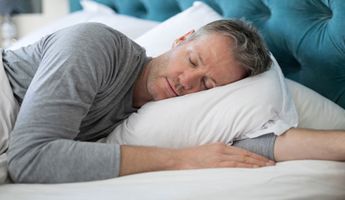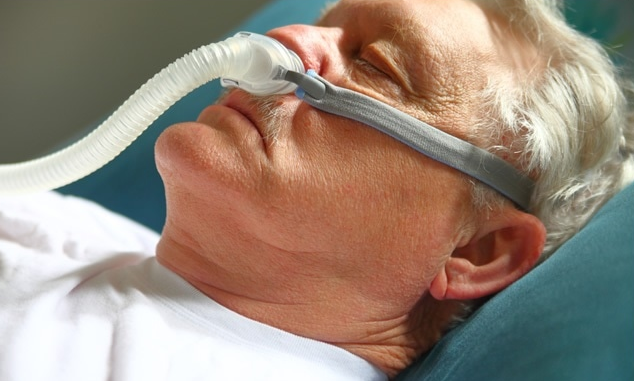Sleep Apnea Surgery in Russian Federation
Search and Compare the Best Clinics and Doctors at the Lowest Prices for Sleep Apnea Surgery in Russian Federation

Find the best clinics for Sleep Apnea Surgery in Russian Federation
No clinics available
Egypt offers the best prices Worldwide
Price: $ 18

- Home
- Russian Federation
WHY US?
At Medijump, we're making medical easy. You can search, compare, discuss, and book your medical all in one place. We open the door to the best medical providers worldwide, saving you time and energy along the way, and it's all for FREE, no hidden fees, and no price markups guaranteed. So what are you waiting for?

Free

Best Price

Widest Selection

Risk-Free
What you need to know about Sleep Apnea Surgery in Russian Federation

Sleep apnea surgery is recommended when other types of treatment have not improved your sleep apnea. There are various types of sleep apnea surgery and each one focuses on a few different body parts, including the nose, tongue, palate (the soft tissue in the back of your mouth and throat), as well as the bones of your face, jaw, and neck.
What does a Sleep Apnea Surgery Procedure Involve?
Nasal surgery is performed if you have a deviated septum or any growths such as polyps that can get in the way of your breathing. With tongue surgery, part of the base of your tongue is removed or your tongue is firmed up by pulling the muscles that attach it to your jaw in order to keep your tongue from blocking your airway. If your doctor recommends palate surgery, your doctor may perform tonsillectomy, uvulopalatopharyngoplasty, palate radiofrequency, or palate implants. If you need surgery to your bones, your surgeon may break your upper and lower jaw and move everything forward to make your airways bigger.
How Long Should I Stay in Russian Federation for a Sleep Apnea Surgery Procedure?
Depending on which procedure you underwent, you may need to stay in Russian Federation for 7 to 14 days or until your surgeon allows you to travel. During your stay, you will attend follow up checkups where your condition will be monitored and any stitches will be removed.
What's the Recovery Time for Sleep Apnea Surgery Procedures in Russian Federation?
The recovery period varies depending on the type of surgery you undergo as well as your overall health. It may take several weeks or months until you can return to your normal activities (including work and exercise) and eat your normal diet.
What sort of Aftercare is Required for Sleep Apnea Surgery Procedures in Russian Federation?
Different types of surgery may have different aftercare. Your surgeon will give you a set of instructions that include wound care, dietary restrictions, and exercises. You may also need to attend a follow-up checkup with your local doctor to monitor your healing progress.
What's the Success Rate of Sleep Apnea Surgery Procedures in Russian Federation?
Sleep apnea surgery is generally safe and effective. Removing part of your base tongue has around 60% success rate, but surgery performed to your bones offer a higher success rate. The side effects and risks of sleep apnea surgery are infections, excessive bleeding, deep vein thrombosis, urinary retention, additional breathing problems, and allergic reaction to anesthesia.
Are there Alternatives to Sleep Apnea Surgery Procedures in Russian Federation?
Surgery is normally not required if your problem can be managed with non-surgical treatment. Your doctor may recommend a nerve stimulator, mouthpieces, special pillows, or a device called Continuous Positive Airway Pressure (CPAP) as the alternatives. Make sure to discuss with your doctor the best option for your case.
What Should You Expect Before and After the Procedure
Sleep apnea prevents you from sleeping well, making you feel sleepy and unable to think straight during the day. It can be dangerous for your day-to-day life and increase the chance of having an accident while driving or at work. After the surgery, you can start sleeping well and your quality of life will be greatly improved.
Whilst the information presented here has been accurately sourced and verified by a medical professional for its accuracy, it is still advised to consult with your doctor before pursuing a medical treatment at one of the listed medical providers
No Time?
Tell us what you're looking for and we'll reachout to the top clinics all at once
Enquire Now

Popular Procedures in Russian Federation
Prices Start From $404

Prices Start From $308

Prices Start From $2,104

Prices Start From $2,487

Recommended Medical Centers in Russian Federation for procedures similar to Sleep Apnea Surgery

- Interpreter services
- Translation service
- Religious facilities
- Medical records transfer
- Medical travel insurance
- Health insurance coordination
- TV in the room
- Safe in the room
- Phone in the room
- Private rooms for patients available

- Interpreter services
- Translation service
- Religious facilities
- Medical records transfer
- Medical travel insurance
- Health insurance coordination
- TV in the room
- Safe in the room
- Phone in the room
- Private rooms for patients available

- Interpreter services
- Translation service
- Religious facilities
- Medical records transfer
- Medical travel insurance
- Health insurance coordination
- TV in the room
- Safe in the room
- Phone in the room
- Private rooms for patients available
Sleep Apnea Surgery in and around Russian Federation
The Russian Federation, or Russia, is a transcontinental country that stretches over a vast expanse of Eastern Europe and northern Asia. Once a mighty tsarist empire and a communist superpower, this massive country is enigmatic, intimidating, and fascinating all at the same time. It has everything, from the idyllic countryside and historic cities to scenic beauty and artistic riches. Today, Russia is a famous medical tourism destination. The number of medical tourists seeking high-quality healthcare continues to double each year. These medical tourists mainly come from Asian countries, such as China, South Korea, India, Japan, and Vietnam. They come to receive a wide range of medical care, with IVF treatment, dental services, cosmetic surgery, and cardiovascular surgery being the most sought-after.
Popular Parts of the Russian Federation
Most visitors are drawn to the western part of the country, particularly to Moscow and St. Petersburg. Moscow, the capital of Russia, is popular for its show-stopping architecture, rich history, amazing culture, and great food. Some of the most famous landmarks are the St. Basil’s Cathedral, the Red Square and the Lenin Mausoleum, the Moscow Kremlin, The Tretiakov Gallery, and the Wooden Palace of Tsar Alexei Mikhailovich. St. Petersburg, Russia’s second city and imperial capital, is one of the most gracious cities in Europe. People come to this city to visit the State Hermitage Museum, the Grand Palace, and Catherine Park.
Weather and Climate in the Russian Federation
There are four seasons in Russia. December to February are the winter months, which is cold and snowy, with short days and long nights. The average temperature during this season is around -10°C to 3°C. Spring comes in March, bringing warmer, but rainy weather. Summer, from June to August, is hot and humid, with an average temperature of around 12°C to 26°C. The weather can be quite unpredictable in the summer, and downpours can come unexpectedly. Autumn is from September to October and is warm and pleasant.
Getting around in the Russian Federation
The largest airport in Russia that receive the most international flights is Sheremetyevo Alexander S. Pushkin International Airport in Moscow. It serves both domestic and international flights to many cities around the globe. Since Russia is the world’s largest territory, internal flights are the fastest and most convenient way to get around. Trains have an extensive network, and, with many comfortable overnight services, is considered as the best way to get around. Buses are a great option to travel to the areas not covered by the train. Some really remote destinations may only be reached by private cars or taxis. Taxis are relatively inexpensive and widely available.
Tourist Visas in the Russian Federation
Nationals of 62 nations, including Brazil, South Africa, South Korea, North Macedonia, and Hong Kong, can visit and stay in Russia without a visa for a period of 14 to 90 days. Citizens of other countries not listed in the visa exemption agreement need a visa to enter. Electronic visas are available for citizens of several countries, including all EU countries, China, and India.
Additional Information
- Local Currency: Russian uses the Russian ruble (RUB) as its official currency. 1 USD is equivalent to 77.16 RUB.
- Money & Payments: The easiest way to get rubles is by using ATMs, which is available throughout the country. Major credit and debit cards, including MasterCard and Visa, are accepted in larger hotels and restaurants, but cash is more reliable. Some places may offer to accept euros and dollars, but this is illegal. Tipping is expected, around 10% to 15% of the bill. Always tip in cash and give it directly to the waiter.
- Local Language: There are over 100 minority languages spoken in Russia, but the official and most widely spoken language is Russian. English is spoken to some degree, especially in major cities.
- Local Culture and Religion: Most of Russia’s population adheres to Christianity, with the Russian Orthodox Church being the biggest Christian denomination. There are also small groups of Muslims, Buddhists, and Jewish.
- Public holidays: New Year’s Day, Orthodox Christmas Day, Defender of the Fatherland Day, Victory Day, Russia Day, and Unity Day are some of the most important public holidays in Russia.
Popular Searches
- Plastic Surgery in Thailand
- Dental Implants in Thailand
- Hair Transplant in Thailand
- Breast Augmentation Thailand
- Gastric Sleeve in Thailand
- Gender Reassignment Surgery in Thailand
- Laser Hair Removal in Bangkok
- Botox in Bangkok
- Dermatology in Bangkok
- Breast Augmentation in Bangkok
- Coolsculpting in Bangkok
- Veneers in Turkey
- Hair Transplant in Turkey
- Rhinoplasty in Turkey
- Stem Cell Therapy in Mexico
- Rhinoplasty in Mexico
- Liposuction in Mexico
- Coolsculpting in Tijuana
- Rhinoplasty in Korea
- Scar Removal in Korea
- Gastric Sleeve in Turkey
- Bone Marrow Transplant in India
- Invisalign in Malaysia
- Plastic Surgery in the Dominican Republic
- Tummy Tuck in the Dominican Republic
- Plastic and Cosmetic Surgery in Poland
- Rhinoplasty in Poland
- Hair Implant in Poland
- Dental Implants in Poland
- IVF in Turkey